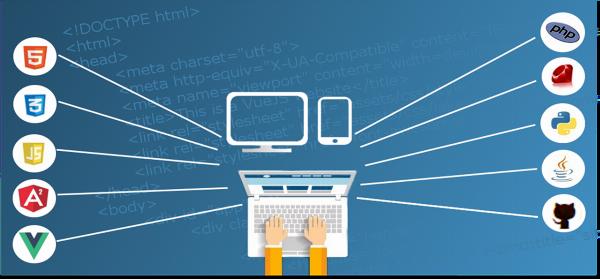Full Stack Development vs. Specialized Development: Which is Better?

Strong 8k brings an ultra-HD IPTV experience to your living room and your pocket.
In the dynamic world of software development, professionals often face a critical decision: Should they become a full stack developer or focus on a specialized area of development? This choice can shape their career paths, skill sets, and the types of projects they work on. Both approaches have their merits and challenges, making it essential to understand the differences, advantages, and potential career outcomes of each.
Understanding Full Stack Development
Full stack development involves working with both the front end and back end of web applications. A full stack developer has the versatility to handle the entire software development process, from designing user interfaces (UI) to managing databases and servers. This comprehensive skill set allows them to understand how the various components of a web application interact and work together.
Key Skills of Full Stack Developers:
Front-End Technologies: HTML, CSS, JavaScript, and frameworks like React, Angular, or Vue.js.
Back-End Technologies: Languages like Python, Java, Ruby, PHP, and frameworks like Node.js, Django, or Spring.
Databases: SQL and NoSQL databases such as MySQL, PostgreSQL, MongoDB, and Redis.
Version Control: Proficiency in Git and platforms like GitHub or GitLab.
DevOps: Basic understanding of server management, cloud services (AWS, Azure, GCP), and continuous integration/continuous deployment (CI/CD) pipelines.
Advantages of Full Stack Development:
Versatility: Full stack developers can work on multiple parts of a project, providing flexibility to employers and the ability to contribute to various aspects of a project.
Cost-Efficiency: Companies may prefer hiring full stack developers as they can handle more tasks independently, potentially reducing the need for a larger team.
Comprehensive Understanding: Full stack developers gain a holistic view of the entire development process, allowing them to troubleshoot issues more effectively and contribute to strategic decision-making.
Understanding Specialized Development
Specialized development focuses on mastering a particular area of development, such as front-end, back-end, mobile app development, or database management. Specialists dive deep into their chosen field, becoming experts in specific technologies and methodologies.
Key Areas of Specialization:
Front-End Development: Focuses on creating visually appealing and user-friendly interfaces using HTML, CSS, JavaScript, and front-end frameworks.
Back-End Development: Involves building and maintaining the server-side logic, databases, and application programming interfaces (APIs) using languages like Python, Java, or Ruby.
Mobile App Development: Specializes in creating applications for mobile devices using languages and frameworks like Swift, Kotlin, Flutter, or React Native.
Database Management: Concentrates on designing, implementing, and maintaining databases to ensure data integrity and performance.
Advantages of Specialized Development:
Deep Expertise: Specialists develop in-depth knowledge and skills in their area, becoming invaluable resources for complex tasks and projects.
High Demand: Certain specialized skills, such as mobile app development or advanced data analysis, are in high demand, often leading to better job opportunities and higher salaries.
Focused Career Path: Specialization allows professionals to target specific roles and industries, making it easier to identify and pursue career advancements.
Comparing Full Stack and Specialized Development
Career Opportunities:
Full Stack Developers often find opportunities in startups and smaller companies where versatility is highly valued. They are also sought after for roles that require managing and integrating various components of a web application.
Specialized Developers may find roles in larger organizations or projects that require deep expertise in a particular technology. Industries like finance, healthcare, and tech giants often seek specialists for their intricate systems and applications.
Learning Curve:
Full Stack Development requires learning a broad range of technologies, which can be challenging but rewarding. Continuous learning is essential to stay updated with the latest trends and tools across both front-end and back-end development.
Specialized Development allows for focused learning on specific technologies, leading to quicker mastery and expertise. However, specialists must stay current with advancements in their field to remain competitive.
Project Involvement:
Full Stack Developers can engage in all aspects of a project, from initial concept to deployment and maintenance. This involvement can lead to a strong sense of ownership and satisfaction.
Specialized Developers may work on specific parts of a project, often collaborating with other specialists. This collaboration can lead to high-quality outputs, leveraging the deep expertise of each team member.
Salary and Job Security:
Full Stack Developers generally have a broad range of job opportunities, offering job security due to their versatile skill set. Salaries can vary based on experience and the complexity of projects they handle.
Specialized Developers often command higher salaries due to their niche expertise, especially in high-demand fields like AI, cybersecurity, or mobile development. Their job security is tied to the demand for their specific skills.
Conclusion: Which is Better?
Deciding between full stack development and specialized development depends on individual career goals, interests, and the industry landscape. For those who enjoy versatility and working on diverse tasks, full stack development can be highly rewarding. It offers flexibility and a comprehensive understanding of the development process.
On the other hand, for those who prefer to dive deep into a specific technology and become experts, specialized development is the way to go. Specialists often find lucrative opportunities in fields that require advanced knowledge and skills.
Ultimately, the choice between full stack development and specialized development should align with personal interests, career aspirations, and the evolving demands of the tech industry. Both paths offer unique advantages and can lead to successful and fulfilling careers in software development.
For those interested in pursuing a career in full stack development, consider exploring comprehensive training programs. For instance, the Full Stack Development Training Institute in Nagpur and more cities offer courses designed to equip aspiring developers with the necessary skills to excel in this dynamic field. By staying informed about industry trends and continuously enhancing your skill set, you can make a well-informed decision and thrive in your chosen career path.
Note: IndiBlogHub features both user-submitted and editorial content. We do not verify third-party contributions. Read our Disclaimer and Privacy Policyfor details.


